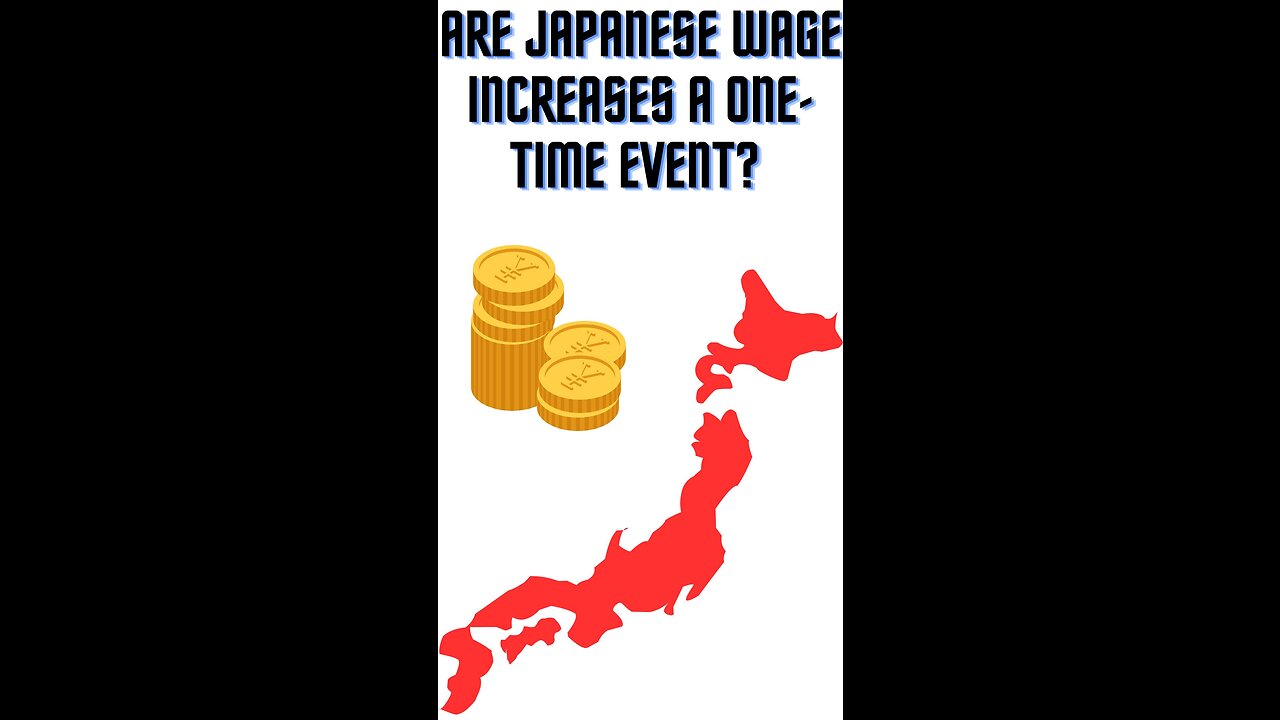Premium Only Content

Are Japanese Wage Increases a One-Time Event?
Wages in Japan rose by only 4% between 1990 and 2019 versus 145% in America during that period of time.
Japanese labor unions value job stability more than raises. Due to poor productivity, companies do not want to raise wages. All of these factors have led to low inflation, or deflation.
This year inflation in Japan was over 4%. Japanese are getting increases to their pay. Wages are set when companies and unions meet annually in something called “the spring offensive.” Wage negotiations are leading to the fastest wage growth in three decades.
The Bank of Japan seems content to let inflation and wage growth run a bit longer.
The Japanese labor market is tight.
More women and elderly people are in the labor force now than previously. However, Japan is facing an aging demographic and low birth rates. We will need to wait and see if this is a one time wage growth and inflation blip on the radar, or part of a longer trend.
Warren Buffet seems to be interested in Japanese stocks, specifically something called “trading houses” which are essentially giant conglomerates. This suggests to be a bet on the general Japanese economy.
Works Cited:
https://asia.nikkei.com/Editor-s-Picks/Interview/Warren-Buffett-says-he-intends-to-add-to-Japanese-stock-holdings2
https://www.cnbc.com/2023/04/12/warren-buffett-why-he-bought-5-japanese-trading-houses.html
https://www.economist.com/finance-and-economics/2023/04/13/after-decades-of-stagnation-wages-in-japan-are-finally-rising
-
 3:29
3:29
The Last Capitalist in Chicago
1 year ago $0.06 earnedAmericans are spending like there is no tomorrow
2092 -
 2:37:37
2:37:37
The Confessionals
2 hours agoHe Caught the Aliens Returning His Brother After His Abduction (They Screwed Up Bad)
103 -
 1:04:37
1:04:37
Timcast
2 hours agoTrump SLAMS Democrats Over IMPEACHMENT After CEASEFIRE Holds
157K173 -
 LIVE
LIVE
Simply Bitcoin
2 hours ago $0.52 earnedWW3 CANCELLED: $250,000 By 2026 CONFIRMED!! | EP 1273
215 watching -
 LIVE
LIVE
Viss
2 hours ago🔴LIVE - Learn The Tactics You Need To Dominate Battle Royale - PUBG
225 watching -
 1:57:39
1:57:39
Steven Crowder
4 hours ago🔴 You've Been Lied To
391K381 -
 1:02:29
1:02:29
The Rubin Report
3 hours agoTrump Goes in Expletive-Filled Tirade Over Israel & Iran Messing Up Ceasefire Agreement
120K41 -
 DVR
DVR
Flyover Conservatives
3 hours agoSettler vs. Immigrant: The Language War That Rewrites History - Wade Stotts | FOC Show
18.4K1 -
 DVR
DVR
TheAlecLaceShow
1 hour agoGuest: Dinesh D’Souza | Trump Drops F-Bomb on Israel & Iran | MAGA Divided | The Alec Lace Show
6.13K -
 LIVE
LIVE
Rebel News
1 hour agoCarney's 'new world order', Smith launches Alberta Next panel, Trump the peacemaker | Rebel Roundup
444 watching